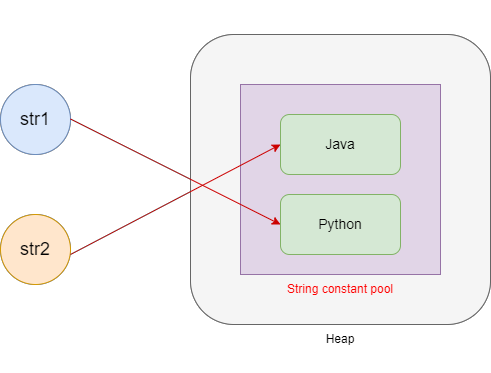Why Are Strings Immutable in Java? Key Reasons and Benefits Described
Why Are Strings Immutable in Java? Key Reasons and Benefits Described
Blog Article
Unalterable Strings: A Trick Component in Ensuring Information Uniformity and Integrity
In the realm of information management, the significance of unalterable strings can not be overstated. These changeless sequences of personalities play a pivotal duty in upholding the integrity and precision of information within systems. By keeping a state of immutability, information consistency is made sure, promoting a foundation of integrity upon which critical processes depend. The idea of unalterable strings goes beyond plain triviality; it is a cornerstone in the complicated internet of data administration. As we check out the benefits, application approaches, and sensible applications of immutable strings, a clearer picture arises of their essential nature in protecting the digital landscape.
The Concept of Unalterable Strings
Immutable strings, an essential idea in programs, describe strings that can not be modified as soon as they are developed. Basically, as soon as a string worth is assigned, any kind of procedure that appears to change the string actually develops a brand-new string. This immutability ensures data consistency and reliability in applications, as it protects against unanticipated modifications to the original data.
Benefits in Data Consistency

Information uniformity is essential in numerous facets of software application development, including database management, multi-threaded environments, and dispersed systems (Why are strings immutable in Java?). Immutable strings add significantly to accomplishing this consistency by protecting against data corruption because of concurrent accessibility. In circumstances where several procedures or strings interact with the exact same data all at once, unalterable strings function as a guard versus race conditions and synchronization problems
Furthermore, the immutability of strings streamlines debugging and screening processes. With immutable strings, programmers can trust that once a string is set, it will certainly remain the same, making it much easier to trace the resource of mistakes and making certain that test cases generate constant results. This integrity in information managing ultimately brings about a lot more durable and secure applications.

Carrying Out Immutable Strings
Ensuring the immutability of strings calls for a thoughtful method to their application in software growth. One key approach is to make string courses in a manner that avoids alterations as soon as a string object is created. By making strings unalterable, developers can boost data consistency and dependability in their applications.
To implement immutable strings properly, developers need to favor producing new string things instead of modifying existing ones. This practice makes sure that as soon as a string is appointed a worth, it can not be transformed. Additionally, any type of procedure that shows up to modify the string must create a brand-new string with the desired modifications rather of modifying the initial.
Additionally, making use of unalterable strings can streamline concurrency monitoring in multi-threaded environments. Since unalterable strings can not be changed after creation, they can be safely shared amongst several strings without the threat of data corruption.
Duty in Reliability Assurance
In software application development, the application of unalterable strings plays an important visit their website role in making certain the reliability of data operations. Unalterable strings, once created, can not be modified, guaranteeing that the information they represent remains consistent throughout the application's implementation. This immutability home supplies a degree of guarantee that the data being processed will not be unintentionally altered, causing unanticipated outcomes or errors in the system.
By including unalterable strings right into software program style, programmers can boost the integrity of their applications by decreasing the dangers related to mutable data - Why are strings immutable in Java?. Immutable strings help in stopping data corruption or unintentional adjustments, which can be especially critical when dealing with delicate info or when data integrity is extremely important
Furthermore, using unalterable strings simplifies simultaneous processing, as multiple threads can securely gain access to and share string data without the risk of one thread altering the web content while one more is reading it. This aspect contributes dramatically to the general integrity of the software program system, guaranteeing consistent and predictable behavior in information dealing with procedures.
Applications and System Combination
The smooth integration of unalterable strings into numerous applications and systems is crucial for guaranteeing durable data uniformity and integrity throughout diverse technical atmospheres - Why are strings immutable in Java?. Immutable strings play an essential duty in improving the integrity of data exchanges and interactions within complicated software program ecosystems. By integrating immutable strings right into applications, programmers can mitigate the dangers associated with data tampering, unapproved alterations, and unintentional modifications, therefore fortifying the overall protection posture of the system
Unalterable strings can boost interoperability in between disparate systems by supplying a standard style for data representation, allowing much more reliable data handling and exchange methods throughout interconnected systems. By adopting unalterable strings in applications and system assimilation procedures, organizations can strengthen their data infrastructure and promote the reliability and uniformity of their details possessions.
Verdict
To conclude, unalterable strings play a vital role in preserving data consistency and dependability in different applications and system combinations. By guaranteeing that strings can not be changed when created, the honesty of information is preserved, reducing the threat of incongruities and errors. Executing immutable strings can substantially improve the integrity of systems, eventually causing more reputable and precise information processing.

Report this page